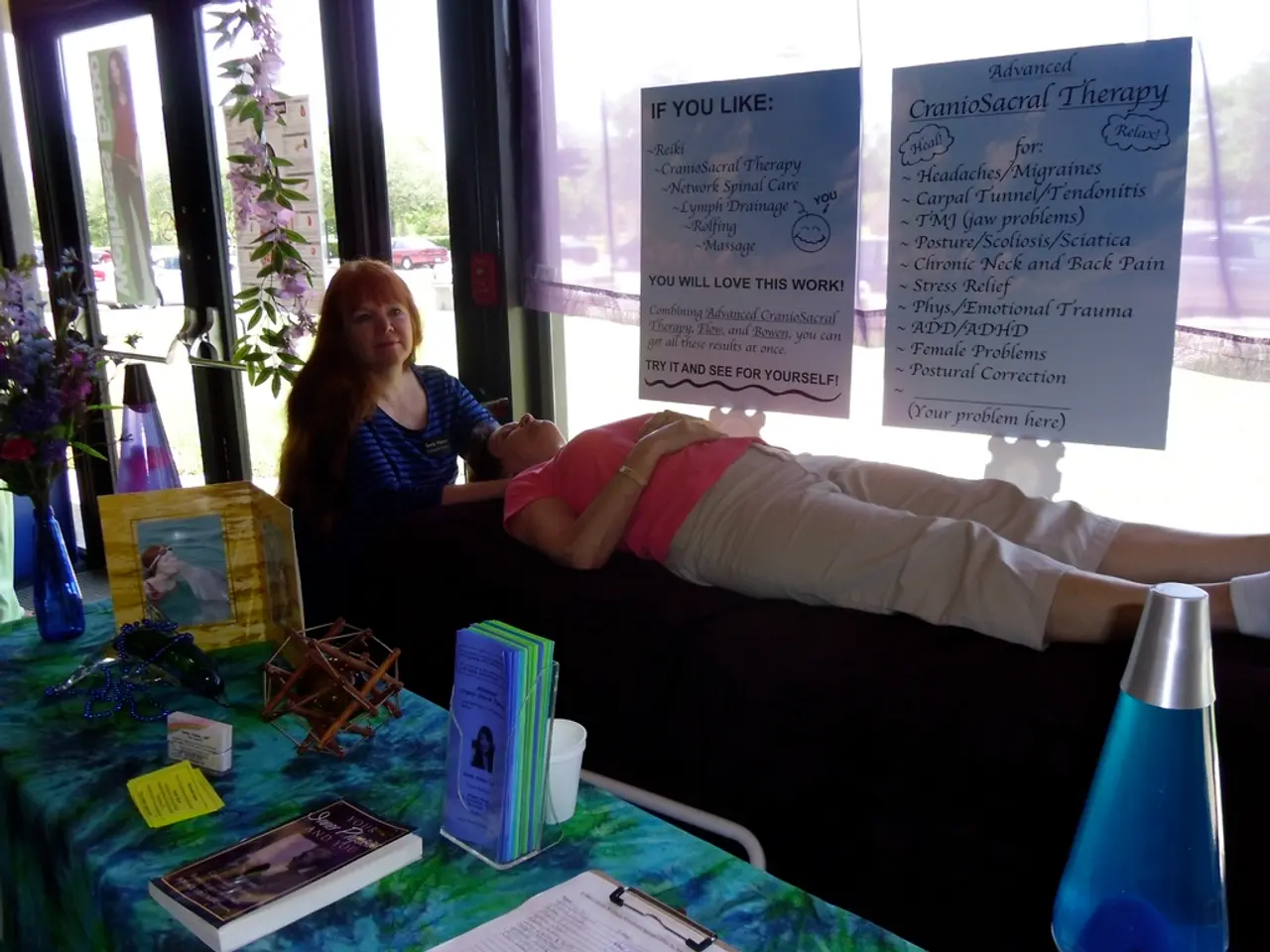Strategies for Managing Anxiety: Tips, Methods, and Additional Insights
Anxiety disorders can cause individuals to avoid certain situations or environments, with some people suffering from agoraphobia, an irrational fear of places that might be difficult to escape, leading them to stop leaving their home. Fortunately, there are numerous strategies available to help manage and cope with anxiety, from medication and therapy to lifestyle changes and coping techniques.
Medication Management ----------------------
Common medications that help regulate brain chemistry and reduce anxiety symptoms include Selective Serotonin Reuptake Inhibitors (SSRIs) such as sertraline (Zoloft) and escitalopram (Lexapro), and Serotonin-Norepinephrine Reuptake Inhibitors (SNRIs) like duloxetine (Cymbalta) and venlafaxine. Other options include buspirone, which is non-sedating, and beta blockers for physical symptoms like rapid heartbeat. Benzodiazepines may be used cautiously for short-term relief but are not recommended long-term due to dependence risk. Medication usually requires professional monitoring and often needs to be continued for at least 12 months after symptom improvement to prevent relapse.
Psychotherapy and Behavioral Health Support --------------------------------------------
Cognitive Behavioral Therapy (CBT) is the gold standard for anxiety disorders, helping individuals identify and challenge irrational or negative thought patterns, develop healthier thinking, and build coping strategies. Acceptance and Commitment Therapy (ACT) is another effective approach focusing on accepting anxious thoughts, psychological flexibility, and engaging in meaningful activities despite anxiety. Structured therapies may also include exposure techniques to reduce avoidance behaviors and gratitude therapy to foster positive thinking.
Lifestyle Changes ------------------
Incorporating regular exercise, maintaining a healthy diet, and getting adequate sleep can improve overall wellbeing and reduce anxiety symptoms. Mindfulness practices, such as meditation and yoga, help increase presence and reduce worry about future uncertainties.
Coping Techniques ------------------
Practice deep breathing exercises like the 4–7–8 method to counteract shallow breathing linked to anxiety and reduce stress. Use progressive muscle relaxation and guided imagery to calm the nervous system. Stay socially connected by reaching out to trusted friends or support groups, which can provide comfort and reduce feelings of isolation. Set realistic goals by breaking tasks into manageable steps and celebrate small achievements to build confidence. Limit stimulants such as caffeine and nicotine, which can exacerbate anxiety symptoms.
In conclusion, long-term management of anxiety disorders typically combines medication, evidence-based therapy (mainly CBT and ACT), lifestyle modifications, and practical coping strategies. This multi-faceted approach enhances daily functioning, reduces symptom severity, and supports resilience against relapse. It is crucial to work with healthcare professionals to tailor and monitor treatment effectively over time. Speaking with others, such as friends, family members, or a therapist, about anxiety or its causes can be helpful, and activities such as yoga or tai chi are helpful for promoting relaxation and reducing anxiety and stress. Capnometry-assisted respiratory training, a type of breathing therapy, has been found to reduce symptom severity in people with panic disorder. Certain situations can trigger symptoms of anxiety, such as job interviews, but managing stress using a variety of methods, such as meditation or slow breathing exercises, can reduce overall anxiety levels. If coping strategies are not working and anxiety becomes disruptive, seeking professional help is recommended.
Mental health treatment for anxiety often involves a combination of medication and psychotherapy. For instance, Selective Serotonin Reuptake Inhibitors (SSRIs) like sertraline (Zoloft) and escitalopram (Lexapro) are commonly used to regulate brain chemistry, whereas Cognitive Behavioral Therapy (CBT) is a gold-standard therapeutic approach that helps individuals challenge irrational thoughts and develop coping strategies for anxiety management.




